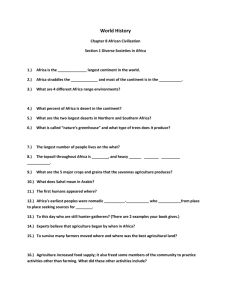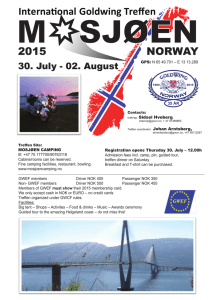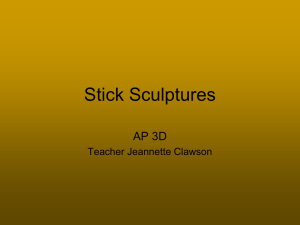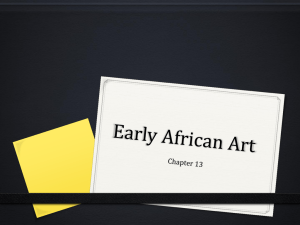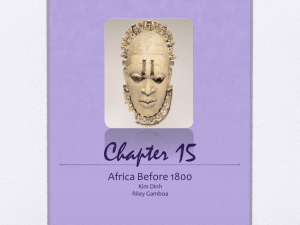Technical case study: A Nok monumental terra cotta sculpture
advertisement
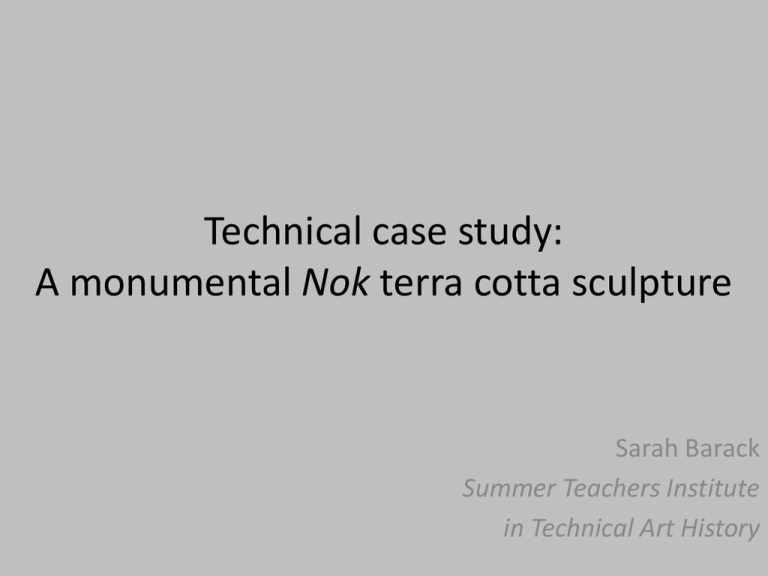
Technical case study: A monumental Nok terra cotta sculpture Sarah Barack Summer Teachers Institute in Technical Art History The object suffered a catastrophic accident, leaving it in 50+ fragments, or sherds During treatment, before fills were made to compensate for losses (note the visible break edges in the head, face, and leg) Examples of Nok figures, with schematic drawing of a Nok fragment above CT Scan of Nok figure Note multiple fragments contained within the object, not visible during examination under visible light Note highly stylized features and pierced pupils/nostrils Coiling a pot, a traditional ceramic working technique Open-pit firing, note the uneven heat and stacking of the pieces Interior of the “Nok” sculpture; note the similarities between the coiling image above and the ring around the bottom of the stool seen here Sherd from “Nok” sculpture; note the thick, brown adhesive line Back of the “Nok” sculpture, view into head section before hair reattached Technical Study • FTIR (Fourier Transform Infra-red Spectroscopy) • CT Scanning (Computer Tomography • Thermoluminescence Dating (TL) FTIR CT Scan The sculpture entering the CT scanner, as seen from the control room A scan image, capturing surface detail; note the break edges identifying individual sherds CT Scan CT Scan images; arrows connote the small, square fragment present on the back of the sculpture TL Dating Note presence of holes in the middle of the square fragment Technical case study: A Nok monumental terra cotta sculpture THANK YOU to AXA Art for their support of this project
